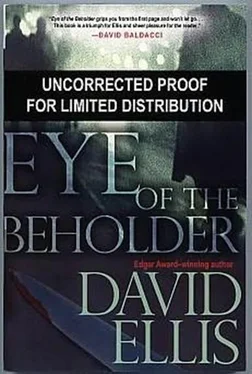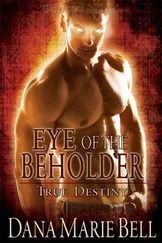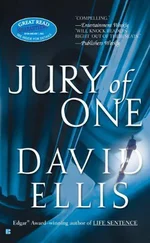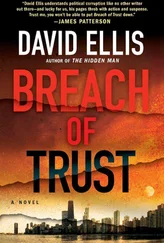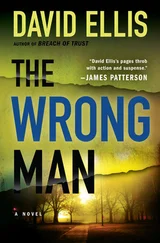“Oh, yes.” Mullaney waved a hand. “I had to ask Harland, you know. I had to ask this grieving man if his daughter was a dyke. I don’t think he can handle that kind of thing in the public eye.”
Riley nodded like a good soldier, trying to read between the lines.
“The Bentleys aren’t just any family, you know. You say something about one of them, it’s in every newspaper in the country. Word gets out that Cassie may have been gay, or these other things we’re hearing-missing class, not eating, turning away her friends-these things, when you’re talking about someone famous, Paul-they get magnified. The media will turn Cassie into some kind of a crazy, suicidal freak:”
Riley didn’t speak.
“Hell, Paul, look at the coverage on Harland and Natalia’s separation last week.”
Riley had read it, too. Reports were that the Bentleys were divorcing. The skinny was, their daughter Cassie had been the only thing holding them together.
Mullaney turned to Paul and leaned on the windowsill. “Paul, another thing that concerns me here is putting all our eggs in one basket.”
Riley watched his boss without responding. The thought had crossed his mind as well. In a multiple-murder case, one school of thought was to hold back one of the victims. In the unlikely event that something went south and the defendant beat the charges, you could always charge him again with the other, remaining victim. Two bites at the apple.
“What are you saying to me, boss?” Riley asked.
Mullaney opened his hands. “This is going to be a circus, as it is. Subtract the Bentleys-”
“And it’s still a circus.”
The county attorney smiled politely, but his eyes went cold. After an appropriate pause, he said, delicately, “The family of one of the victims, recognizing that their daughter is going to be dragged through the mud, and recognizing that the other five murders will be prosecuted, has requested that her murder be prosecuted at a later time. And we wouldn’t agree to this, of course, unless we also felt that it was a sound legal strategy. In this particular case, it clearly is good strategy.”
Riley suppressed a smile, a sour one. Mullaney’s words could have been plucked directly from a press release. But the words brought ice to his chest.
The county attorney was telling Riley to drop Cassie’s murder from the charges.
“You said yourself, Paul, her case was the toughest.”
“I did.”
“Answer me this,” said Mullaney. “Does dropping the charges on Cassie prejudice your ability to convict this animal? Does it hinder you in the slightest?”
“No,” Riley conceded.
“And, in fact, doesn’t it give us a second chance at him if he somehow gets off on insanity with the other five girls?”
“Also true.”
“All right, then.” Mullaney nodded, like the deal was sealed. “Can I trust that the look on your face will be gone when you walk out of this office?”
That surprised Riley. He always prided himself on playing it straight. And he didn’t have a big problem with the maneuver. It made sense. He just didn’t like the fact that a wealthy political contributor was making decisions for the prosecution.
“I don’t like it,” Riley said.
“I didn’t ask you if you liked it.” Mullaney turned back to him. “I asked you if you were going to be a team player on this.”
Paul felt the room shrink. He was new to a political office, but he wasn’t stupid. The coach was telling him that he could change quarterbacks anytime. The play had already been called, to move the analogy. It was just a question of who would take the snap.
“I appointed you as my top deputy, over a number of deserving people already in this office,” Mullaney said, carefully, “because you’re the best trial lawyer in the city. And I want the best trial lawyer in the city prosecuting this animal.”
Riley didn’t answer. He was being snowed. Riley had been brought in precisely because he was an outsider-a federal prosecutor, above the tarnish of local politics. There had been a scandal that had exploded only a few months ago, a few county prosecutors found to be on the take, in concert with some dirty defense lawyers and cops-and Mullaney had brought in a consummate outsider to show his commitment to an overhaul. It was political cover, and it was insulting for Mullaney to pretend otherwise.
“I’m going to need an answer right now,” Mullaney said.
Riley cleared his throat, his eyes moving from the floor to the county attorney, who stood at the window.
“Grow up, Paul,” he said earnestly. “You said yourself, this is good trial strategy. If a victim declined to press charges, we’d drop a case, right? This is basically the same thing, except the victim can’t ask. Her family can. They don’t want her bloodied any more. Don’t let your imagination-or your pride-get in the way here.”
Riley got to his feet, stuffed his hands in his pockets, chewed on his lip. He couldn’t believe he was being threatened. And he knew what Ed Mullaney was thinking-this was the biggest case a prosecutor could hope for. And it had fallen into Paul Riley’s lap.
Riley looked beyond Mullaney, through the window and onto the plaza. It was a warm, sunny day. Riley pictured himself leaving this office, crossing the plaza to the federal building, knocking on the door and asking for his old job back.
Mullaney was next to him now, a look of compromise on his face.
Riley knew, suddenly, that his days at the county attorney’s office were numbered. Yet Riley wanted this case. He wanted to put away this monster. He didn’t believe, in any way, that Terry Burgos deserved to beat these charges. He had used rational thought all along the way as he butchered those women. He hadn’t come close to meeting the legal definition of insanity.
And regardless of how new Riley was to the job, Burgos had killed these women on his watch.
Riley did the math. It would probably take six to nine months before this case was over. He would convict Terry Burgos, and then he would resign.
“From here on out,” Riley said, “I make the calls.”
“All of them.” The county attorney put a hand on Riley’s shoulder. “Now, go convict us a mass murderer.”
Tuesday
June 21, 2005
WAIT, SHELLY. Just wait,” I say, then open my eyes. A brief moment of panic, disorientation, then I lift my head and see the street. Dillard Street, I assume, where I last remember escorting the young lady who called herself Molly. I look for my watch and find only the impression of one, like a tan line, on the skin of my wrist. I make the mistake of touching the back of my head, moist and raw. I manage to get to my feet on shaky legs and instinctively wipe at my suit, damp from lying on rain-soaked trash. I could make a decent salad out of what I brush off my tuxedo.
I’m in an alley that intersects Dillard, where a pair of garbage bags just served as my bed for the last hour or so. I’m still in my clothes, at least, but that’s about all I can brag about. No money, no keys. Still have my wallet and credit cards and license, only the cash missing. They probably figured they wouldn’t have time to spend the limit before I canceled them tonight- they being the woman, “Molly,” and whoever hit me with the sledgehammer, which is how I choose to remember it.
My head is ringing but I’ll live. I take a deep breath and catch the odor of city garbage on my clothes.
Oldest damn trick in the book. Jesus, how easy could I make it? I let this lady walk me into an alley, middle-aged and sauced off my rocker. The guy could have been wearing clown shoes and I wouldn’t have heard him. A child of ten could have taken me.
Читать дальше
